dd
by Laura Dail and Matthew Krogh
HBO’s new miniseries White House Plumbers imagines the story of how political saboteurs E. Howard Hunt (Woody Harrelson) and G. Gordon Liddy (Justin Theroux) brought about the controversial end to Nixon’s presidency. Laura Dail and Matthew Krogh (author of The White House Plumbers) invite you to meet the real-life people who made up the secret unit.
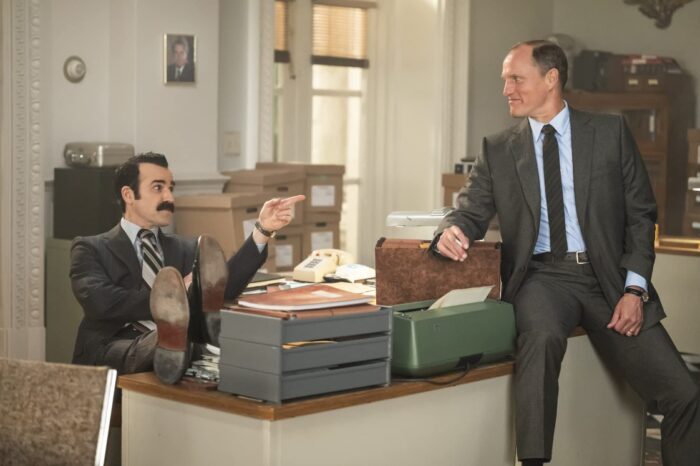
Take one goody two shoes, one junior staffer, and three guys ready and trained to get it done at any cost. Mix them together in a secret room in a government building in July 1971. Add a paranoid president, national security threats, and a country at war, and you’ve got The White House Plumbers—a recipe for disaster since the day the ingredients combined.
The Plumbers are best remembered for the politically motivated Watergate Hotel break-in, but dirty tricks in dark hotels weren’t why they were brought together. The “Special Investigation Unit” (or SIU) was created to plug a series of leaks of classified documents including “The Pentagon Papers” and the fallback negotiating position for the Strategic Arms Limitation Talks (SALT). America was a country at war, both hot and cold, and national security leaks were considered an existential threat by President Nixon and his national security advisor, Henry Kissinger.
The president was determined to stop the leaks. His relationships with the FBI and CIA were rocky so Nixon turned to his trusted advisor John Ehrlichman to solve the problem in-house. Ehrlichman, in turn, recruited his right-hand man Egil Krogh. The unit started with a team of five; let’s meet them.
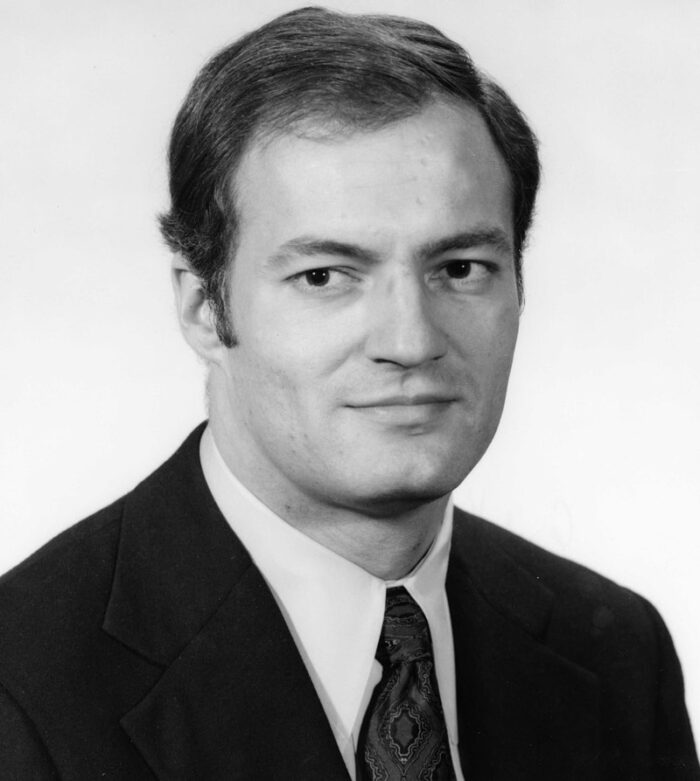
Egil “Bud” Krogh was serving as deputy assistant to the president for domestic affairs in the summer of 1971 when he was appointed to co-direct the SIU. With an ironic nickname “Evil,” (because he was so obviously not), Krogh seems an unlikely choice to head a clandestine investigations unit. John Ehrlichman, an old family friend and mentor, had hired Krogh to work in his law firm after graduating from the University of Washington Law School. When President-elect Nixon asked Ehrlichman to serve as counsel to the President, Ehrlichman asked Krogh if he’d like to come along. Krogh replied in an instant: “Yes sir, I certainly would.” He was twenty-nine years old—and only thirty-one years old when directed to establish the SIU two years later.
Krogh once told a friend “only a yo-yo would work in the Department of Transportation,” but that’s where he asked to go in 1972, shaken by the Plumbers’ clandestine activities and the expanding Watergate investigations. In January of 1973, he was unanimously confirmed by the Senate Commerce Committee as Under Secretary of Transportation.
It was a short stint at the DOT, as things unraveled quickly. Krogh pled guilty a mere 10 months later. To avoid any possible suggestion that he was seeking leniency, he insisted he be sentenced before he testified. He wanted to be sentenced solely on the basis of what he did, not trading testimony for a lighter punishment. Goody two shoes was back.
Judge Gerhard Gesell sentenced Krogh to a term of two to six years of which he was to serve six months and remain on unsupervised probation for another two years.
Thirty-one is young for the kind of responsibility Krogh was handed, but twenty-three is even younger for a high-stakes clandestine national security related assignment. Kathleen (Kathy) Chenow, the unit’s secretary, was assigned to the unit at the age of twenty-three, an age when many are still in college. In an unusual step to keep the Plumbers’ facilities secret, phone bills for the SIU’s clandestine operations in Room 16 were set up to go to her home. Chenow was transferred to the SIU from White House staffer Jeffrey Donfeld. Geoff Shepherd, another White House staffer, described Chenow’s transfer in his exit interview: “…when Donfeld left, she was Donfeld’ s secretary, she went down to the Room 16 unit and entered into horror.”
Chenow served no time for her role in the Plumbers.
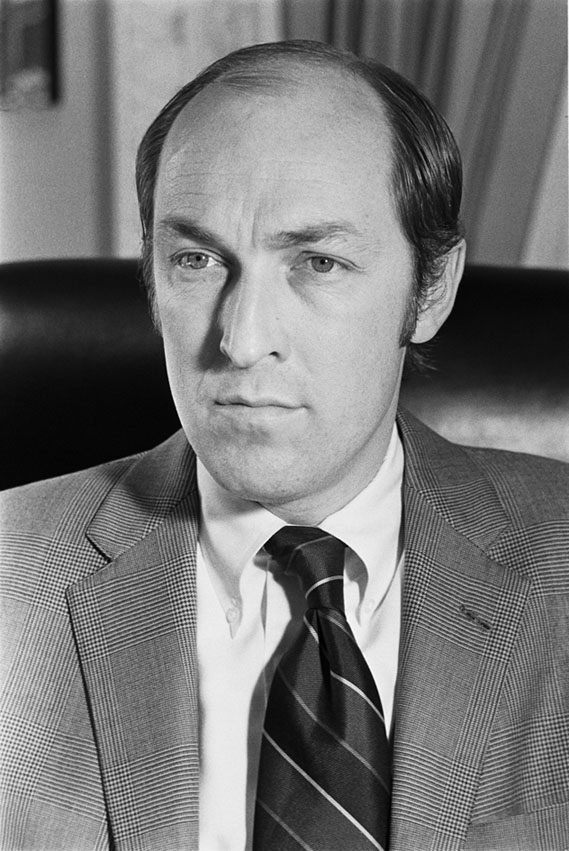
David R. Young, Jr. was one of Henry Kissinger’s closest personal aides on the National Security Council staff when he was assigned to the SIU. While Krogh would continue his other duties in addition to co-directing the Plumbers, Young went to work for the Plumbers full-time. As the on-site co-director of the unit, he had primary responsibility for the day-to-day, even hour-by-hour, flow of information.
A graduate of Cornell Law School, Young was a promising New York attorney until he joined the Nixon White House. With light blue eyes in a narrow face, Krogh described him as laid-back and somewhat professorial.
As the Watergate scandal unfolded in the papers and courts, Young was given full immunity by U.S. Attorney Earl Silbert in exchange for Plumbers’ documents and incriminating testimony. After the dust settled, Young moved to the UK and founded an international affairs consulting company called Oxford Analytica.
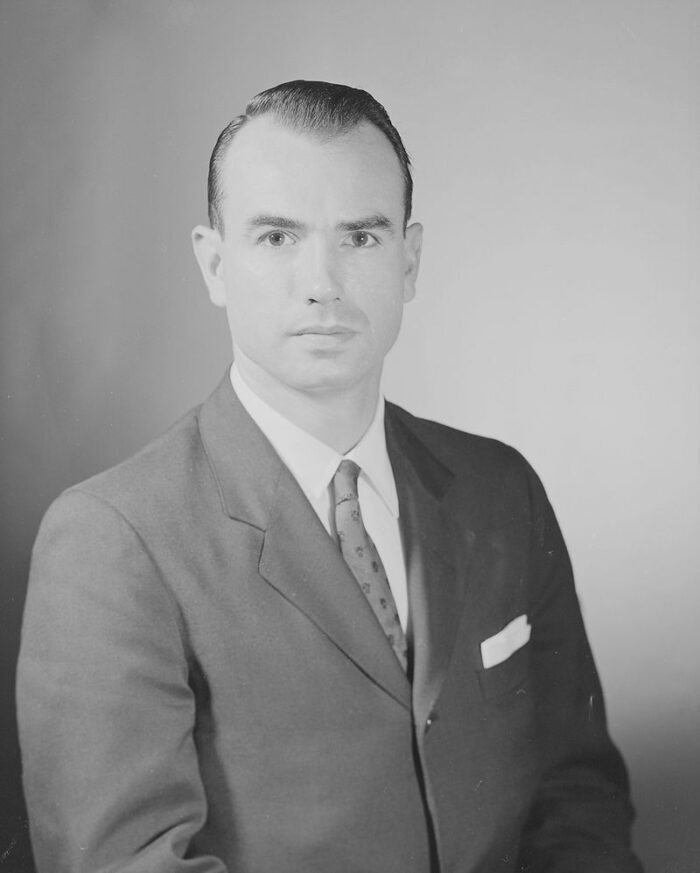
There was a stark contrast between laid-back and professorial Young, and G. Gordon Liddy. Five-foot-ten, Liddy had thinning brown hair, heavy eyebrows over piercing dark eyes, and a bushy mustache. Shaking hands, his grip was vise-like. He had a warrior-type charisma, according to Krogh, and a “strain of fanaticism” in his character.
A former FBI special agent, prosecutor, and Republican loyalist, Liddy was Krogh’s first call to pull a team together. He was serving as special assistant to the secretary in the Treasury Department’s law enforcement section, clashing with his boss there. They were already looking to move him to the White House staff, which he officially joined on July 20, 1971.
When he left the Plumbers, Liddy was offered the position of general counsel to Nixon’s 1972 re-election campaign, the Committee for the Re-election of the President (CRP or, more aptly, CREEP). Krogh told Jeb Magruder, who hired Liddy, that he would need close supervision, an understatement that will live in infamy.
Liddy served almost four and a half years in federal prison for his role in the Watergate break-ins, including his refusal to testify before an investigating senate subcommittee.
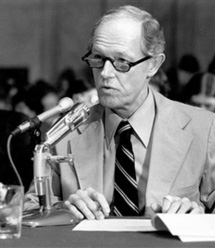
E. Howard Hunt was assigned to the unit by Chuck Colson, special counsel to the President.
Short and dapper, with what Krogh describes as a sharp, aquiline nose, Hunt was unassuming and diffident. He was a smooth operator with a spy’s ability to blend in.
Hunt could easily be the most interesting man in any room, depending on the room. When he joined the unit, he claimed he was not officially working for the CIA but had had a long career with the Agency and had run agents mostly in Latin America. One of the key “can do” members of the Plumbers, Hunt may have undersold his bona fides which ranged from the Bay of Pigs to toppling governments in Guatemala. And now he was bringing those skills into the service of the small unit, operating in secret with no oversight.
The Brown University graduate was eventually convicted of burglary, conspiracy, and wiretapping, ultimately serving 33 months in prison.
These were the five original Plumbers who put in place the systems of operation and a culture of secrecy that led to the downfall of the Nixon administration. Three of the five Plumbers ended up doing time for their zealous efforts to stop what the president insisted were leaks of high national security importance. Once the first illegal act was approved—a break in of the psychiatrist’s office who treated the leaker of the Pentagon Papers, Daniel Ellsberg—the table was set for more of the same. And the rest is Watergate history.
Matthew Krogh is a professional change maker focused on issues of climate change, fossil fuels, and policy. Mostly based in Bellingham, Washington, he has spent his career in nonprofit activism at various organizations, and has worked as a freelance writer, ranger, and geographic analyst. He is grateful for the opportunity to amplify his dad’s important life lessons through co-authoring The White House Plumbers, along with its earlier iteration Integrity.
Laura Dail is a literary agent in New York City. She doesn’t just represent Matthew Krogh, and the late Egil “Bud” Krogh, co-authors of The White House Plumbers, she is also their step-sister/step-daughter.
